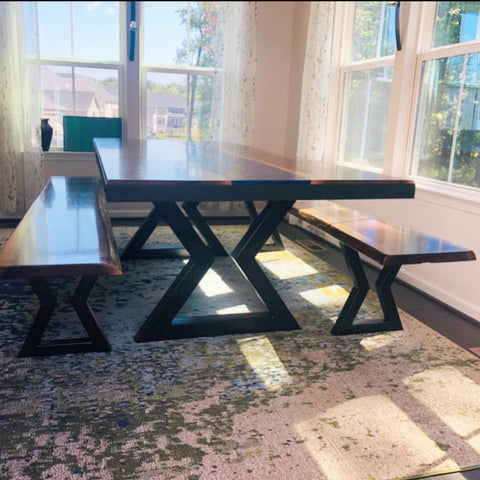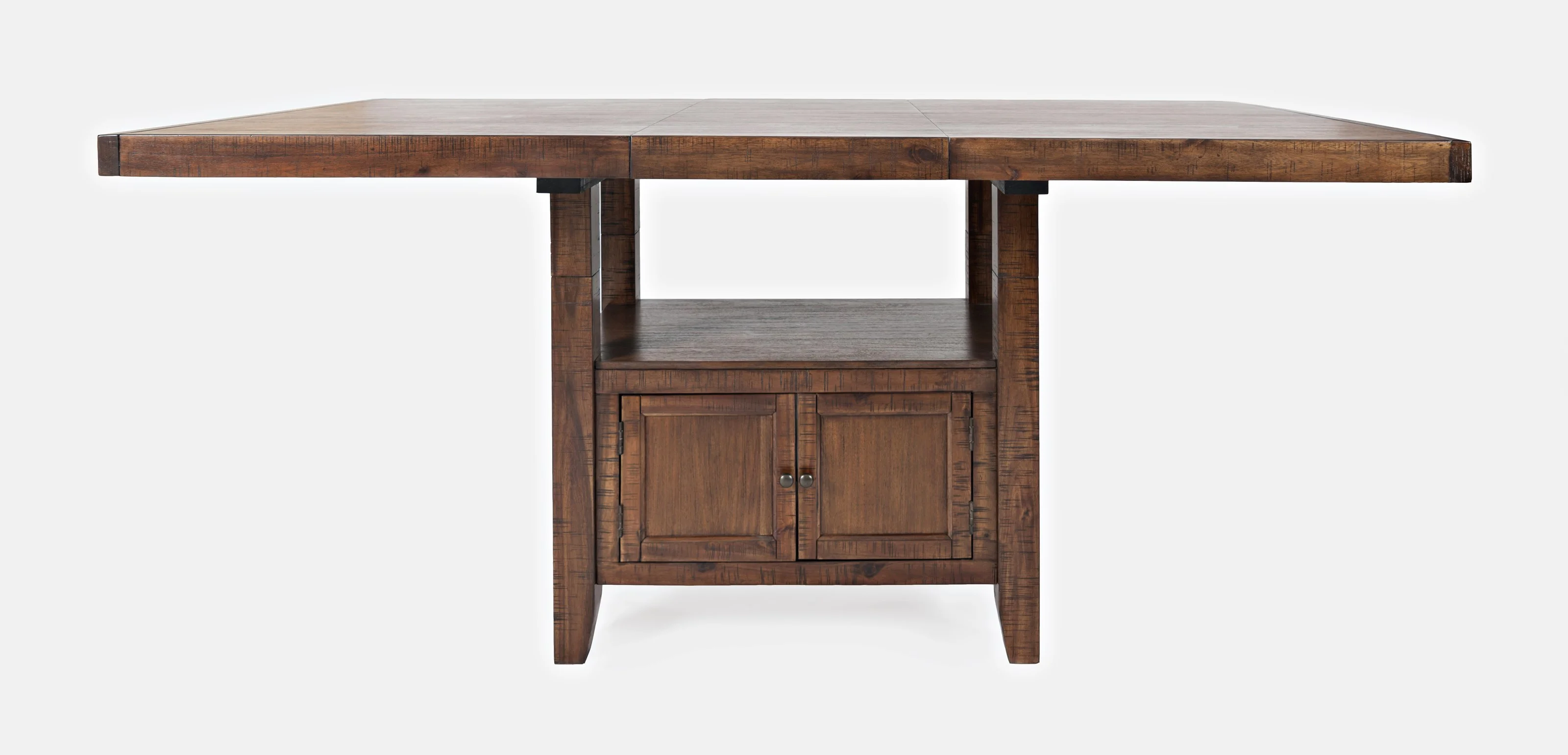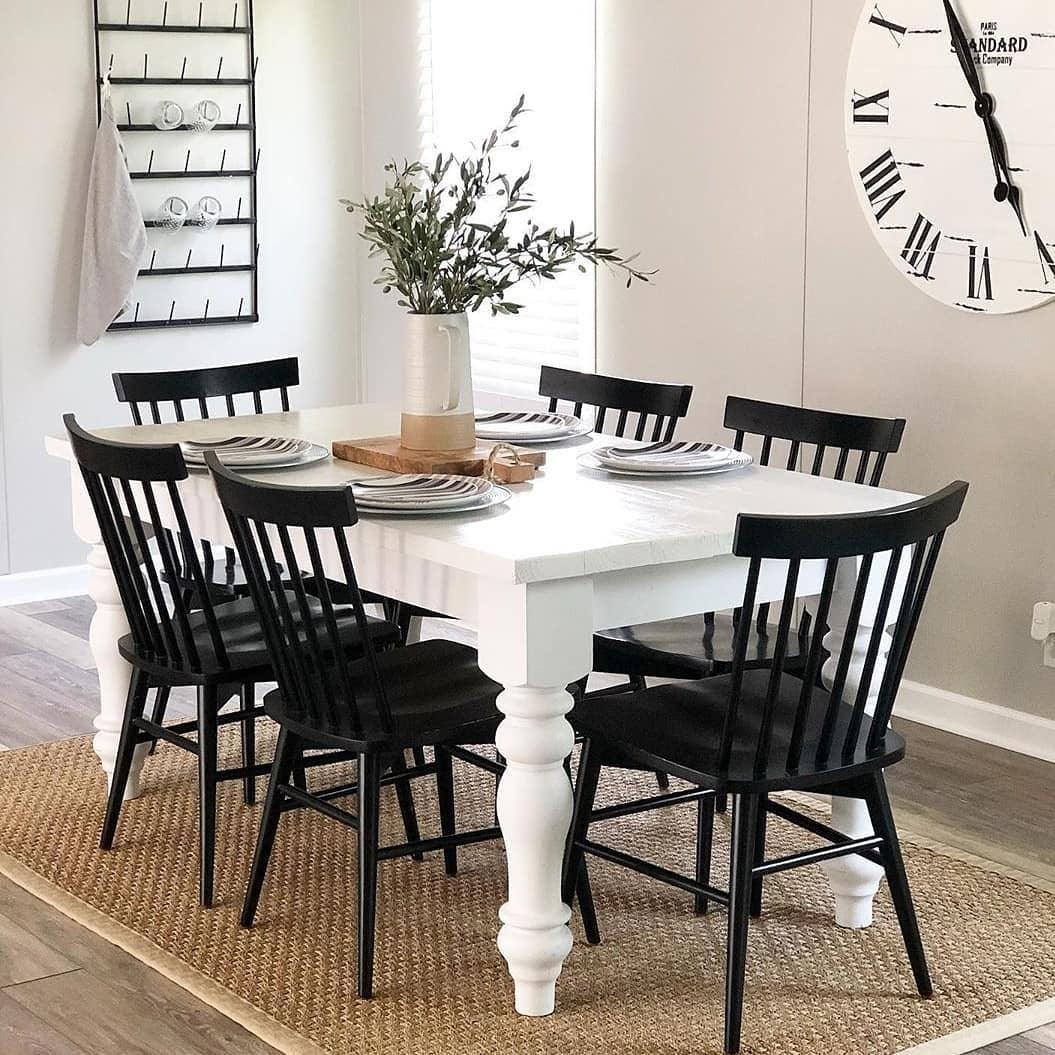The Impact of Dining Room Table Legs on Your Table's Overall Design
The Impact of Dining Room Table Legs on Your Table's Overall Design
Blog Article
How to Pick the Perfect Dining-room Table Legs for Your Home Design
Choosing the perfect dining-room table legs is a nuanced procedure that calls for cautious factor to consider of numerous elements, including your room restraints, visual choices, and sensible needs. The interplay between designs, materials, and measurements can considerably influence the atmosphere of your dining area, making it necessary to approach this choice methodically. As you ponder the myriad choices offered, it becomes clear that the right choice extends beyond plain look; it can improve your overall dining experience. What elements should you prioritize to ensure your option enhances your home's one-of-a-kind personality?
Assess Your Dining Area
Evaluating your dining room is vital for choosing the right table legs that match both aesthetics and performance. Begin by gauging the measurements of your eating location, consisting of ceiling height, flooring space, and closeness to other furnishings. This details will certainly assist identify the appropriate size and height of your dining table, which directly influences the option of table legs.
Following, consider the design and format of your dining room. An open-concept style may profit from table legs that offer visual lightness, such as slender steel or acrylic options. Alternatively, a much more conventional setting might ask for durable wood legs that give a feeling of permanence.
Examine the existing shade scheme and materials in your dining location. Integrating the table legs with these components develops a cohesive look that boosts the general decoration. Additionally, think about the functionality called for in your room. If you frequently hold big celebrations, think about legs that give added support and security.
Eventually, a complete evaluation of your eating space will assist you in making a notified choice, guaranteeing that your table legs not just enhance the aesthetic charm but likewise serve practical purposes.
Consider Your Style Preferences
When picking dining room table legs, it is vital to assess your personal style preferences, as they dramatically affect the total aesthetic of your dining room. Your option of table legs can either enhance or contrast with existing design, making it important to align them with your recommended interior decoration motif.
If your home leans towards a modern-day visual, consider sleek steel or minimalist wood legs that provide a clean, uncluttered appearance. For a more typical technique, ornate wood legs with elaborate makings can add a touch of style and elegance. Industrial designs take advantage of durable, resources such as redeemed wood and steel combinations, reflecting a rugged appeal.
Furthermore, farmhouse and rustic styles often prefer strong, chunky legs that evoke a feeling of heat and convenience. On the other hand, if your décor is diverse, you could select unusual shapes or a mix of products to create visual passion.

Evaluate Material Options
The option of material for eating space table legs plays a crucial role in both sturdiness and visual allure. Usual materials include wood, metal, and composite options, each offering distinctive features that can affect the overall look and durability of your table.
Wood is a classic selection, known for its warmth and flexibility. Hardwoods like oak and walnut offer outstanding strength and can be finished in numerous spots to match any decor. Softwoods like ache are a lot more prone to dents and scratches, making them less ideal for high-traffic locations.
Metal legs, usually crafted from steel or light weight aluminum, emanate modernity and commercial charm. They are resistant and very long lasting to use, making them suitable for families with youngsters or regular events (dining room table legs). Additionally, steel can be ended up in different colors, improving the customization opportunities
Composite materials, such as MDF or laminate, deal cost and diverse layouts. While usually less long lasting than solid wood or steel, they can still give an elegant appearance and are often very easy to preserve.
Ultimately, the product you choose must align with your way of living, aesthetic preferences, and the degree of use your table will certainly experience.
Determine Elevation and Size
Picking the suitable height and dimension for your eating room table is crucial for both capability and comfort. The common height for dining tables usually varies from 28 to 30 inches, allowing adequate legroom for most people when seated. Nonetheless, it is vital to consider the measurements of your eating area check my source and the kinds of chairs you prepare to use.

Furthermore, consider the proportions of your dining room. A larger table in a roomy area can produce a grand atmosphere, while a smaller sized table works well in more intimate setups. Eventually, the ideal height and size will harmonize with your total decor and boost the eating experience for you and your visitors.
Explore Customization Opportunities

In addition, the design of the legs can be tailored to fit different styles, such as rustic, modern, or commercial. Tapered legs can evoke a mid-century modern-day feel, while chunky, block-style legs might resonate with typical or farmhouse decoration.
Property owners can additionally check out color finishes, from all-natural timber spots to paint, allowing them to match or contrast with the table top and index surrounding decor.
In addition, leg elevation can be gotten used to fit specific seating arrangements or personal choices, improving both comfort and functionality.
Last but not least, unique decorations, such as makings or decorative brackets, can additionally individualize the table legs, making the eating experience not just a declaration but a dish piece in the home. By thinking about these customization alternatives, homeowners can produce a dining-room table that really mirrors their uniqueness.
Verdict
Selecting the suitable dining-room table legs calls for mindful consideration of different factors, consisting of the measurements of the dining room, style preferences, material sturdiness, and Continued preferred elevation. Modification options even more improve the capacity to attain a natural visual that complements the overall style. By systematically examining these components, property owners can make sure that the picked table legs not just satisfy functional demands yet likewise contribute positively to the dining experience and atmosphere of the home.
Choosing the excellent dining room table legs is a nuanced process that requires careful consideration of various elements, including your area restrictions, visual choices, and functional requirements.Evaluating your dining area is important for choosing the right table legs that complement both appearances and capability.When establishing size, gauge the location where the table will be placed to guarantee it fits pleasantly, enabling for at least 36 inches of clearance around the table for easy activity. A larger table in a roomy location can develop a grand setting, while a smaller sized table functions well in more intimate settings.Selecting the ideal eating room table legs calls for cautious consideration of numerous aspects, including the measurements of the dining room, design choices, material longevity, and preferred height.
Report this page